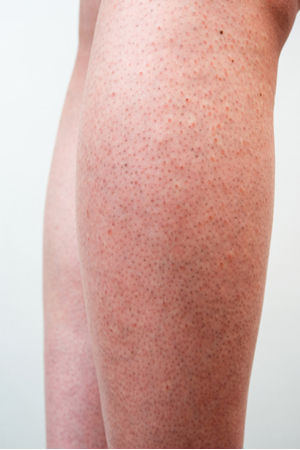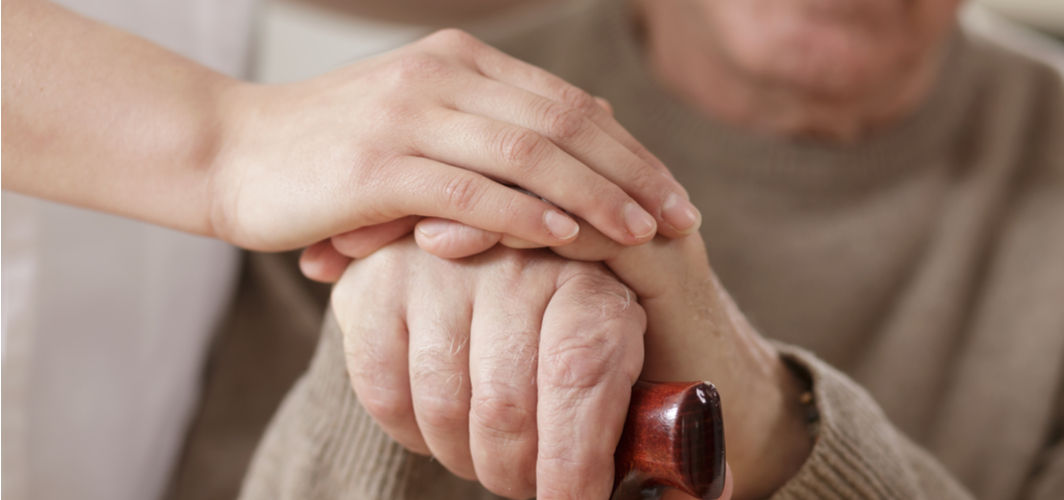General Health
Experiencing Goosebumps Unusually? Know What It Can Mean
2 min read
By Apollo 24|7, Published on - 21 June 2022, Updated on - 13 July 2025
Share this article
0
42 likes

Every time we hear a mesmerising voice, watch something spooky or get cold, we tend to experience goosebumps. Scientifically speaking goosebumps are involuntary reactions triggered by the body in response to stimuli. Goosebumps, also called piloerection, occur when the tiny muscles located at the base of each hair follicle contract, causing the hairs on our arms, legs, and torso to stand up.
While goosebumps are normal reactions, they may indicate an underlying health condition as well. The article explores the medical causes of goosebumps in detail below.
Medical conditions that may trigger goosebumps
Medical conditions that could be the reason behind goosebumps are:
1. Keratosis pilaris
Keratosis pilaris (KP), also known as “chicken skin” is a common, harmless skin condition that causes the formation of dry, rough patches and tiny bumps on the skin, especially on the upper arms, thighs, cheeks, or buttocks. The tiny bumps that resemble goosebumps are formed by dead skin cells that clog the hair follicles. The signs of KP include:
- Painless tiny bumps on the skin that worsen during winters

- Sandpaper like skin
- Dry and rough skin in the areas with bumps
There is no known cure for keratosis pilaris, however, the tiny bumps usually disappear by age 30.
2. Autonomic dysreflexia
Autonomic dysreflexia, also known as autonomic hyperreflexia, is a serious medical condition in which the nervous system overreacts to external or bodily stimulation. The condition results in a sudden spike in blood pressure with a very low heart rate. Other signs include:
- Profuse sweating
.jpg)
- Anxiety
- Confusion
- Dizziness
- Blurry vision
- Nasal congestion
- Goosebumps in the lower body
- Difficulty in breathing
Without prompt treatment, autonomic dysreflexia can result in severe complications like stroke, retinal haemorrhage, cardiac arrest, and pulmonary oedema.
3. Temporal lobe epilepsy
The temporal lobe is a part of the brain that is responsible for processing memories and sounds, interpreting vision, producing speech, understanding language, and regulating automatic responses such as hunger, thirst, fight-or-flight, and emotions. In temporal epilepsy, seizures occur in the temporal lobe areas of the brain. During a seizure, a person may experience symptoms such as:
- Loss of awareness of surroundings
- Repetitive movements like lip-smacking, staring, swallowing, chewing, goosebumps, and unusual finger movements.

While the majority of the people with temporal lobe epilepsy show significant improvement with anti-epilepsy drugs, surgery may be necessary to reduce the instances of seizures.
Goosebumps occurrences are involuntary reactions to certain types of stimulation. The appearance of goosebumps tends to suggest that you are either cold or having an emotionally strong experience. However, in rare cases, they may also indicate a medical condition. If you are experiencing goosebumps with other unusual symptoms, consult your physician for further investigation.
Medically reviewed by Dr Sonia Bhatt.
General Health
Leave Comment
Recommended for you
.jpg?tr=q-80)
General Health
Understanding Bleeding Time (BT) and Clotting Time (CT) Normal Range
Bleeding Time (BT) and Clotting Time (CT) tests measure your blood’s ability to clot. Understand the normal ranges and their significance for your health.

General Health
What Is Parkinson’s Disease: Are You At Risk?
Parkinson’s is a progressive disease that can adversely affect your physical and mental wellbeing.

General Health
5 Things You Should Never Do In Winter
The seasons each have their highs and lows. Given that winter has arrived and will likely stick around for a while, it's important to recognise that even seemingly harmless routines might pose serious risks during the season. Take a look at this list of basic habits.
Subscribe
Sign up for our free Health Library Daily Newsletter
Get doctor-approved health tips, news, and more.
Visual Stories

Science-backed Home Remedies for Burns and Blisters
Tap to continue exploring
Recommended for you
.jpg?tr=q-80)
General Health
Understanding Bleeding Time (BT) and Clotting Time (CT) Normal Range
Bleeding Time (BT) and Clotting Time (CT) tests measure your blood’s ability to clot. Understand the normal ranges and their significance for your health.

General Health
What Is Parkinson’s Disease: Are You At Risk?
Parkinson’s is a progressive disease that can adversely affect your physical and mental wellbeing.

General Health
5 Things You Should Never Do In Winter
The seasons each have their highs and lows. Given that winter has arrived and will likely stick around for a while, it's important to recognise that even seemingly harmless routines might pose serious risks during the season. Take a look at this list of basic habits.